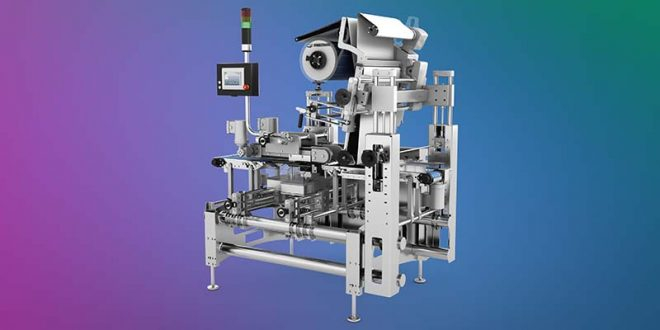According to a recent press release, MULTIVAC’s full wrap labeling offers a sustainable and high-quality solution for plastic-free packaging concepts. It requires just one wraparound label to securely seal the packs and also provides the product presentation at the same time. The packs are not only impressive at the point of sale with their attractive presentation, they also guarantee a high level of acceptance with consumers, who are increasingly reaching for recyclable packs.
Packaging concepts with board trays, which meet the current requirements in terms of recyclability, are generally, however, cost-intensive and less efficient. This is because a cardboard sleeve usually has to be applied manually to the pack, or alternatively only low cycle rates can be achieved, if the application of the banderole is automated in an intermittent packaging process. If complex folding cartons are used, these often have to be closed manually and frequently provided with an additional label.
With its L 310 full wrap conveyor belt labeller, MULTIVAC can now offer an efficient solution for the attractive presentation of fresh fruit and vegetables in trays, which are stable and straight-walled without any product protrusion, or alternatively in trays with side flaps, if there is some degree of product protrusion.
The cardboard trays are automatically labeled and sealed on the run with self-adhesive labels made of paper, and the trays are either fed in manually or transferred directly from an upstream module. This provides significant cost savings and higher cycle rates, when compared with time-consuming, manual packaging solutions. The cycle output of the L 310 is up to 90 packs per minute. Labels with a width of up to 500 mm and a weight of up to 170 g/m² can be run – and if required, an additional label can also be applied to the bottom of the pack during the same process.
The labeller can be equipped with a zero downtime function for even more efficiency and process reliability, as well as with label/print monitoring at even the highest throughput. A wide selection of printing technology is also available for printing all the production-related data.
“Since the full wrap labels are stabilized by the backing material, virtually all shapes are possible. The range of shapes extends from curves and cut-outs right up to specially tailored shapes to match the product or pack,” explains Michael Reffke, product manager at MULTIVAC Marking & Inspection. “The labels can also be used as a carrier handle – and it is possible to integrate perforations into the full wrap labels, if the materials have a weight of 130 g/m² or more.”
Standard self-adhesive labels made of paper or renewable materials are used to ensure that the pack is completely plastic-free and recyclable. But labels made of PP or PET can also of course be used for full wrap labeling. When compared with cardboard sleeves, full wrap labeling enables very light label material to be used, and this in turn has a positive effect on the CO2 balance along the entire process chain. “If full wrap labels are used instead of cardboard sleeves, the weight of the banderole can even be halved,” adds Reffke.







